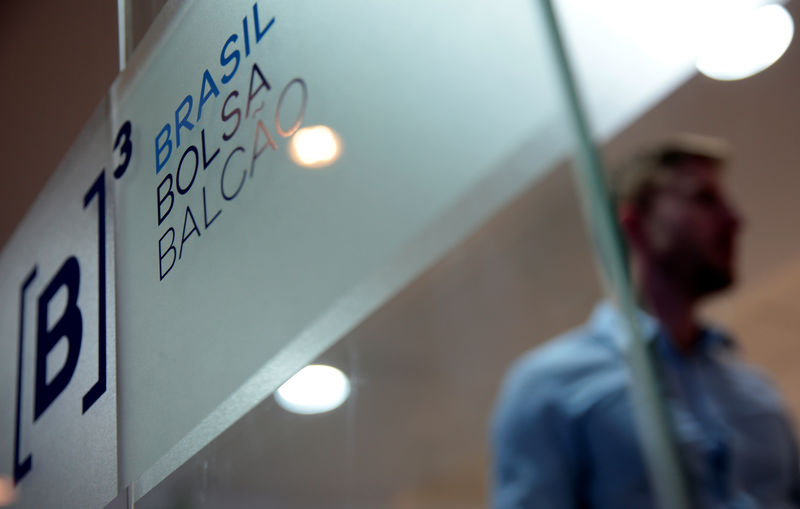By Bruno Federowski
BRASILIA (Reuters) - As a year marked by pivotal presidential elections across Latin America wraps up, a familiar strategy is gaining favor in equity trading desks: buy Brazil, sell Mexico.
The latest Reuters poll showed Brazil's benchmark Bovespa stock index (BVSP) extending this year's rally into 2019 to end the year at 107,500, according to the median of 10 forecasts from traders and strategists.
If their prediction that the index will end this year at 92,000 proves true, that would represent a 17 percent yearly increase in 2019, totaling a nearly 150 percent rally since the end of 2015.
In comparison, Mexico's S&P/BVM IPC index would end 2018 at 45,100 and then rise 11 percent next year to 50,000, delivering a return just slightly exceeding the nation's benchmark 8 percent interest rate.
That would continue this year's divergent trend for both countries, which led poll respondents to raise their end-2018 Brazil stocks forecast since the previous poll, taken in August, and cut Mexico's.
"The performance of the past few weeks is a taste of what we expect for LatAm equities in 2019," strategists at Itaú BBA wrote in a report. "Our discussion of the individual LatAm markets is increasingly relevant given the highly divergent paths followed by these markets since October 1."
The comments highlight how leftist and rightist victories in the Mexican and Brazilian presidential elections, respectively, have once again tipped the scales of investment between Latin America's two largest markets -- which often compete for investors looking for Latin American exposure.
The Brazilian index is up nearly 12 percent this year after far-right lawmaker Jair Bolsonaro, who has named a University of Chicago-trained banker as his prospective Economy Minister tasked with plugging a ballooning budget deficit, won the vote.
Brazil's recovery from its deepest recession in decades, though slow and underwhelming, underpinned those gains, particularly as the central bank drove interest rates to all-time lows.
Shares of state-owned companies, such as oil firm Petróleo Brasileiro SA (SA:PETR4), lender Banco do Brasil SA (SA:BBAS3) and privatization target Centrais Elétricas Brasileiras SA (SA:ELET3), have been among the largest gainers as part of a wider politics-driven bet.
Yet addressing Brazil's fiscal woes would require that Bolsonaro negotiate an unpopular overhaul of the nation's costly pension reform with a fragmented Congress. Contradictory statements from Bolsonaro's own team mean that is hardly a done deal.
The Itaú economists acknowledged the continuation of the stocks rally will depend on that success. "If the reform effort stalls, the perception of fiscal unsustainability will likely affect asset prices, jeopardizing the recovery in economic activity," they wrote.
In contrast, the Mexican stock index fell 20 percent this year, most of which took place in the last two months. Many respondents who usually participate in the poll, in fact, declined to respond this time as they were still revising their forecasts in the wake of the sharp slump.
The main trigger for the selloff was the cancellation of a partly-built new airport in Mexico City by President-elect Andrés Manuel López Obrador. Obrador decided to heed the results of an informal referendum that called for abandoning the current project in which billions of dollars have already been invested.
His team plans to conduct a public consultation - the second of its kind - on a variety of subjects including a new refinery, in a perceived policy misstep to investors looking for an agenda of fiscal austerity and deregulation.
Mexico's central bank earlier this month warned that the incoming government's policies risked fanning inflation and raised interest rates to a nearly 10-year high.

(To read other stories from the Reuters global stock markets poll)